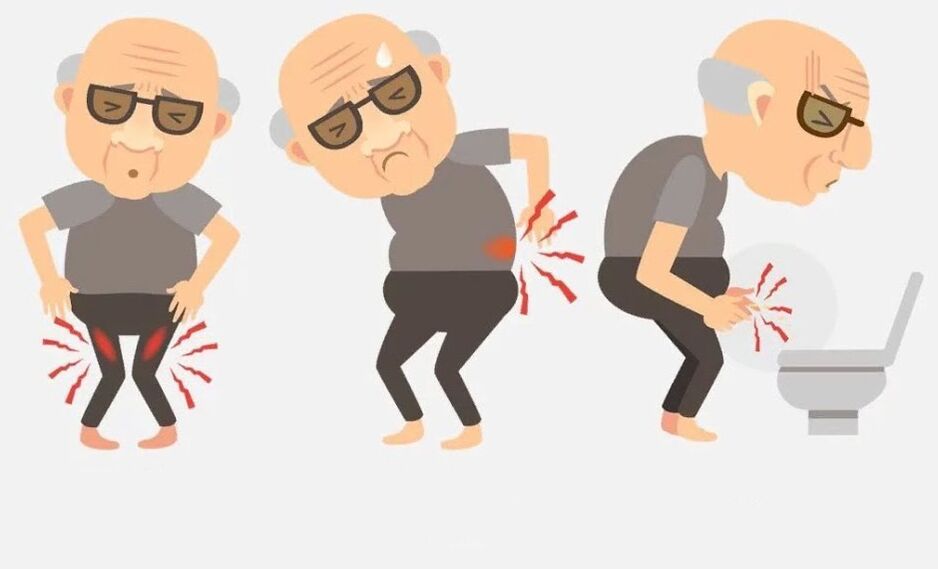All men are affected. So, after identifying the first symptoms, it is important to consult your doctor for information on how to cure prostatitis.
Prostatitis doesn't just occur in people at risk. All men are affected. So, after identifying the first symptoms, it is important to consult your doctor for information on how to cure prostatitis. A specialist center will help with an accurate diagnosis and competent treatment!
What is prostatic disease
Prostatitis is a common disease of the genitourinary system in men. Every fourth man consults a doctor with characteristic symptoms.
There are several types of prostatitis:
- acute bacterial - the causative agent of the disease is mainly Escherichia coli, rarely enterococci;
- chronic bacterial - progressive with remission and relapse, in addition to E. coli, viruses, trichomonas, chlamydia, fungi, mycoplasmas can cause inflammatory processes;
- chronic pelvic pain syndrome - with this pathology, the infection is not identified, the disease occurs with and without inflammation, among provocateurs: low physical activity, rare sex life, overheating/ Hypothermia;
- Asymptomatic - asymptomatic progression, diagnosed incidentally (usually on examination by a physician).
Only a urologist can determine the type of disease. After a thorough diagnosis, a treatment protocol is developed, which is carried out under the supervision of the attending physician.
Can prostatitis be cured? The answer is positive for cases where the disease is in the early stages of development. It is important to prevent the progression of the disease into a chronic form. It is better for you to take preventive measures in time, stopping the inflammatory process of the prostate gland.
Symptoms of Prostatitis
How do you know if you have prostatitis? It is necessary to pay attention to the slightest changes in the functioning of the genitourinary system. Among the common signs of pathology:
- frequent urge to urinate, difficult urine output;
- significant decrease in daily urine output;
- pain during defecation, spreading to the groin;
- after a bowel movement, discharge from the urethra is observed;
- burning in the perineum and urethra;
- spontaneous nocturnal erections;
- increased body temperature;
- weakened erection;
- ejaculating too quickly during intercourse;
- feelings of insensitivity during orgasm.
This disease is accompanied by pain of a different nature. Where is the pain when having prostatitis:
- in the scrotum;
- in the perineum;
- at the base of the penis.
References! The acute form of the pathology is accompanied by frequent headaches.
Urinating during prostatitis is intermittent, which may be accompanied by painful sensations. The bladder is not completely empty. The stream is sluggish. The characteristic symptoms that are often added are decreased working capacity, loss of appetite, and rapid fatigue.
References! Blood with prostatitis contains a prostate-specific antigen. It was discovered during diagnostic research on biomaterials.
Symptoms of an acute form are different from those of a chronic disease. In the second case, there was an alternation of periods of remission with relapse.

Reasons for developing prostatitis
The main reason for the development of pathology, doctors call stagnation of blood in the pelvic organs. This is usually due to a sedentary lifestyle, being overweight, sedentary work, and an unbalanced diet.
Other predisposing factors include:
- genetic predisposition;
- Hypothermia;
- long-term urinary retention;
- functional disorders of the gastrointestinal tract;
- poor circulation in the arteries;
- irregular sex life;
- diseases of the genitourinary system;
- infection;
- chronic foci present in the body;
- frequent trauma of the perineum and surrounding area;
- lack of appropriate treatment for sexually transmitted diseases.
References! Alcohol abuse and regular stress can also cause prostatitis, especially due to decreased immunity.
What causes the development of chronic pelvic pain syndrome (a type of prostatitis) is unknown. It is believed that the disease develops against the background of damage to the body by viruses of the herpetic group, mycoplasmas, chlamydia. Some scientists think that the cause needs to be found in the autoimmune process, persistent hypothermia and low physical activity.
Methods of treatment of prostatitis
Modern medicine, with its accumulated experience in pathology, has comprehensive information on the treatment of prostatitis in men.
Treatment regimens are developed on the basis of diagnostic data. First of all, the focus of inflammation in the prostate is removed. Moreover, with the help of drugs, sexual and other disorders are corrected.
The key to successful treatment is:
- early diagnosis;
- well-designed comprehensive therapy program;
- Follow your doctor's recommendations.
References! Depending on the location of pain when prostatitis in men, with the help of differential diagnosis, serious diseases such as prostatic adenoma, inguinal hernia, secondary cystitis and lower ureteral stones willare excluded.
Taking into account the pathological form, the patient is prescribed treatment using the following methods.
- Drug therapy - provides for the absorption of immunomodulators, vitamins and minerals, antibiotics.
- Physiotherapy - is prescribed mainly in combination with drugs. The methods are characterized by high efficiency: magnetic laser massage, shock wave therapy, ultrasonic wave therapy.
- Surgical intervention - in the absence of positive dynamics after drug therapy, the decision to have surgery is made.
When the first signs of the disease are identified, you should not delay going to the doctor, moreover, you should buy self-medication. This leads to an exacerbation of the situation with serious consequences that require a radical solution. It's better to make an appointment with a urologist right away.
The opinion of doctors related to boils is that prostatitis can be cured if prostatitis in men is treated as soon as the first signs are detected. Therapy of the chronic form requires an integrated approach. At the same time, cases of recurrence despite long-term remission are not excluded.
































